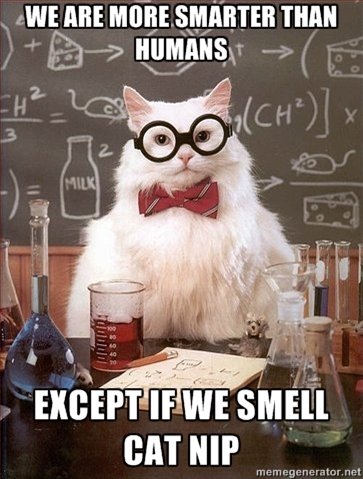(Corver 2005)
Double comparatives are adjectives with more than one comparative marker. For example, the comparative word more and the comparative suffix -er are both applied to the adjective loud in the phrase more louder in the sentence above. Like comparatives, superlatives (most, -est) may also be doubled.
Double comparatives may also involve two instances of the suffix -er, as in the word louderer, though the double usage of this suffix might be a distinct phenomenon from the usage of more and -er together. In particular, there is typically no difference in meaning between louder and more louder, while it may be that there is a difference in meaning between louder and louderer.
Who says this?
The presence of more than one comparative or superlative marker is widespread across varieties of English around the world, and it is attested in other languages as well (Bauer 2007; Wlodarczyk 2007; Szmrecsanyi and Kortmann 2009; Wolfram and Schilling 2016:81, 383). According to Wlodarczyk (2007), it is associated with Appalachian English and African American Vernacular English (see also Montgomery 2008:267), though it may be found in other North American dialects as well, such as Newfoundland English (Clarke 2004:314).
Historically speaking, this construction is attested as far back as Old English (González-Días 2007). As noted by Corver (2005), there are a number of examples from Shakespeare of double comparatives and superlatives, two of which are shown below:
1) a. The Duke of Milan / and his more braver daughter could controul thee.
(Shakespeare, The Tempest)b. This was the most unkindest cut of all.
(Shakespeare, Julius Caesar)

Syntactic Properties
Additional comparisons?
Nevins (2012:92) cites Radford (1977) for the claim that double comparatives do not license two comparisons. For example, the following sentence contains a double comparative and feature two comparisons (comparison with Bill and comparison with you), and they are unacceptable to many native speakers because of this:
2) *John is more taller than Bill than you are.
Kennedy and McNally (2005), however, provide examples like (3), with less, which do seem to license an extra layer of comparison:
3) an old department store a lot less taller than the city hall building than is the new company headquarters
Seuren (1972:561) also suggests that double comparatives with more can in fact license two comparisons:
4) John is more taller than Bill than Peter.
Less co-occurring with -er
Corver (2005) notes that the -er affix doesn't always mean "more" but can be realized in forms like less happier. He gives the following example from Shakespeare:
5) Or as a moat defensive to a house,
Against the envy of less happier lands,
This blessed plot, this earth, this realm, this England.
(Shakespeare, King Richard II, ii, i)
Examples of less happier and similar forms are widely attested on the web, including in the following examples:
6) a. Parents are Not Less Happier than Non-Parents (retrieved 11/5/12)
b. Why Americans are less happier in 2010 (retrieved 11/5/12)
c. is "less and less happier" correct in English? (retrieved 11/5/12)
d. Looks like Android Developers are less happier when compared to iPhone Developers (retrieved 11/5/12)

Cases with two instances of -er
Corver (2005) also discusses cases of double comparatives in Dutch which involve two instances of the comparative affix. This would be analogous to something like biggerer in English. It is at present not clear what the grammatical status of this kind of doubling is in English. Certainly, one finds cases of this, as in the following examples from the web:
7) a. he's getting biggerer (retrieved 11/5/12)
b. STEALING MURAKAMI: THE PLOT GETS STILL THICKERER (retrieved 11/5/12)
However, it is not clear what kind of phenomenon this is. For example, this construction might always be a form of language play (where its users are consciously utilizing a typically ungrammatical form for humorous effect). Many instances, such as the following examples in (8), involve multiple usages together, which suggests that it is conscious language play at least sometimes:
8) a. Biggerer is Betterer (retrieved 11/5/12)
b. If anything had to be BIGGERER, BETTERER, and MORE BADASSER? What would it be? (retrieved 11/5/12)
c. Biggerer, Thickerer, Widerer! (retrieved 11/5/12)
Other instances suggest that -er-er is meaningful doubling. There is, for example, a YouTube video showing two children wrestling, which has the title "guy who's taller than me vs. guy who's evan [sic] tallerer than me". Many instances of this seem to come with even along with a previous instance of a non-doubled comparative, as with the examples in (9):
9) a. Does that mean you're two years taller? [...] That must mean you're even tallerer
. (retrieved 11/5/12)b. The bumps on the toneau are taller, and go back further. [...] Even tallerer and longer humps. (retrieved 11/5/12)
c. If it's so easy for you to destroy the target by running into it, it can conversely lob a small cheap missile your way which will destroy you when you run into it first. Of course, you can lob an even smaller cheaper missile its way which will destroy it before it destroys you, thus allowing you to go on to destroy the target. And conversely, the small cheap missile can lob an even smallerer cheaperer missile which will destroy the smaller cheaper missile before it destroys the small cheap missile; the small cheap missile can then destroy you before you can destroy the target. (retrieved 11/5/12)
Unlike in Dutch, English -er-er has not yet been the subject of syntactic research.
Page contributed by Jim Wood on September 13, 2012
Updates/revisions: August 9, 2015 (Tom McCoy); June 19, 2018 (Katie Martin)
Please cite this page as: Wood, Jim. 2012. Double comparatives. Yale Grammatical Diversity Project: English in North America. (Available online at http://ygdp.yale.edu/phenomena/double-comparatives. Accessed on YYYY-MM-DD). Updated by Tom McCoy (2015) and Katie Martin (2018).